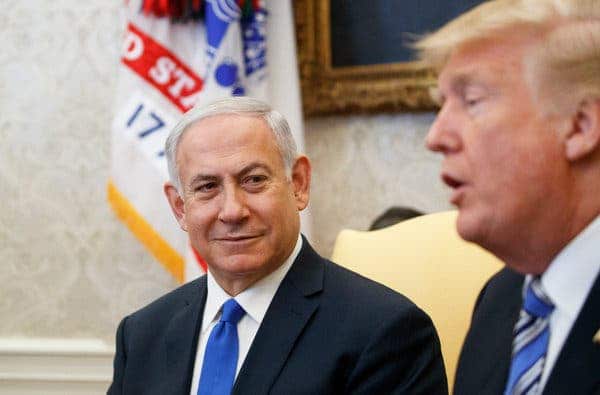We have to wait until President Donald Trump’s Middle East peace plan is unveiled to discuss it; those already discussing are likely to be wrong. But it is worth reviewing where Israelis, Palestinians, Arab states, and Americans have been — and why this time may be different.
The central flaw in the “Palestinian-Israeli peace process” has never been addressed. There has not been — and there is not now — a shared goal toward which Israelis and Palestinians can be induced to work. Instead, each side has three specific and irreconcilable objectives.
The Palestinians — both Hamas and Fatah — seek:
- An independent state without recognizing a legitimate and permanent state of Israel in any territory. Both factions are willing to accept a temporary agreement with Israel on the way to the fulfillment of the PLO Charter to which both are committed. (Reading the Charter will tell you what else they are committed to, and it isn’t a “two state solution.”)
- Sovereign control of East Jerusalem as the capital of the Palestinian state.
- The right of entry for all remaining 1948–1949 Arab refugees from Britain’s Mandatory Palestine, as well s their descendants, to any place within pre-1967 Israel in which they or their antecedents claim to have lived.
Israel seeks three different things:
- Recognition of the legitimacy and permanence of Israel within finalized “secure and recognized boundaries free from threats or acts of force”: U.N. Resolution 242’s security promise to Israel.
- The capital of Israel in Jerusalem and Israeli protection for Jewish patrimony in the eastern part of Jerusalem.
- “End of conflict; end of claims.” After an agreement, the Palestinians will not be able to press additional claims against Israel for territory or other “rights.”
Beyond the issue of objectives, all previous “Palestinian-Israeli peace processes” were doomed because they operated as if the protagonists were on an island in the middle of the sea rather than in the middle of the Middle East. Until recently, the Palestinians counted on lip service, at a minimum — guns and money in better cases — from the so-called “Arab world” and a variety of African and Middle Eastern states. This broad, if shallow, support covered up the fact that the Palestinians were the weakest link in regional politics. It was impossible for Palestinian Authority (PA) strongman Mahmoud Abbas — let alone Hamas — to recognize the legitimacy of Jewish nationhood and accept a split, rump state squeezed between Jordan and Israel if the Arab states with the money and the guns didn’t go along.
The more the U.S. pressed for Palestinian concessions that would rile the bankers, the more the Palestinians retreated. Intransigence and violence were their defense against being told to defy their Arab state patrons.
The core issue was never jobs or civil society or drinking water — or even a state — for the Palestinians; it was never about Palestinians at all. It was about the failure of the Arab states to accept the reality of 1948 and their losses in 1949, and recognize the legitimacy and permanence of the state of Israel in the region. “Secure and recognized boundaries free from threats or acts of force,” says U.N. Resolution 242, and that is the obligation of Arab States to Israel.
And finally, they’re getting there. Anwar Sadat’s bold move has never been the vision of conservative Arab leaders; Sadat, after all, died. But today, Israel’s relations with the Sunni Arab world are closing in on something real. Yes, it is based on threat perception on both sides. Yes, it is tentative. Yes, it has a lot to do with the price of oil. No, it isn’t closeness borne of shared values and governing systems. OK, let’s not get carried away. But this is the Arab-Israeli process. It doesn’t need Palestinians, but maybe they can benefit. If not, not.
Palestinians patrons today are Iran, an increasingly bellicose and Islamist Turkey, and weak European states with little to contribute.
And finally, the Americans.
The PA appears to have mistaken America as an “honest broker” for America as a “neutral party.” Between Palestinians and Israelis, the United States is not, and should not, ever be “neutral.” With Israel we share goals, values, and history; with the Palestinians we do not. “Honest broker” is something else. The U.S. has an obligation to state clearly the requirements of peace and ensure that both players understand the consequences of breaking the rules.
Pursuit of arrangements between Israel and the Palestinians is not for the faint-hearted. The parties deserve honest brokerage — American “neutrality” would be a betrayal of an ally.
Now, let’s see what the Trump administration has in mind.






